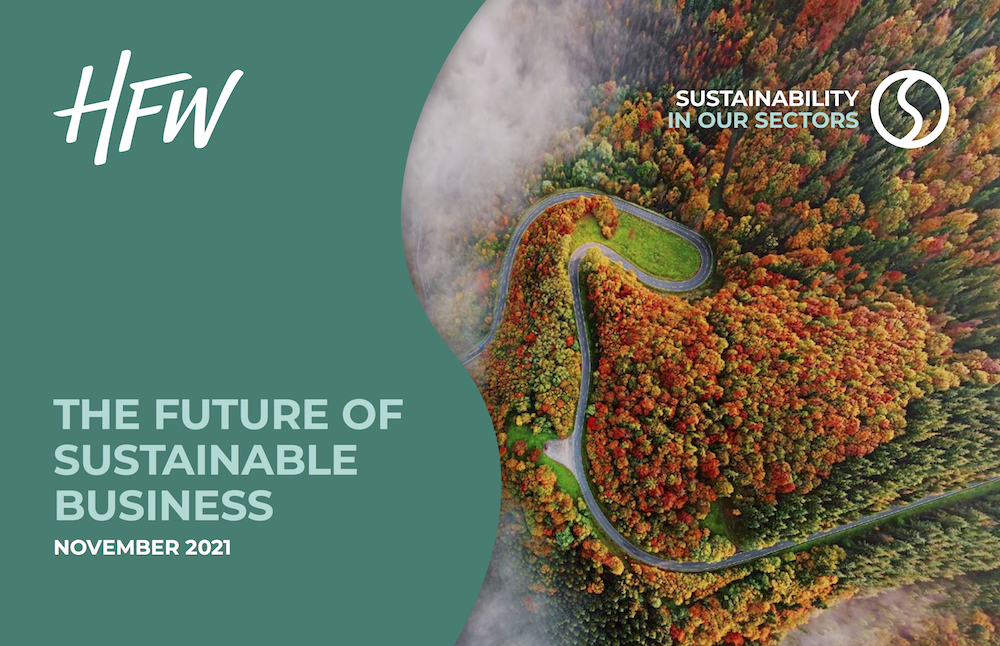Posted on: 4 November 2021
We are living through climate change, says Sustainability Partner Giles Kavanagh in HFW’s latest report ‘The future of sustainable business’. The time to avert or even slow its onset has passed, and we are left with the task of mitigating, adapting and limiting its acceleration into crisis. The release in August 2021 of the first part of the latest Intergovernmental Panel on Climate Change (IPCC) assessment report, AR6, shone a stark light on the likelihood of global warming exceeding 1.5ºC above pre-industrial levels.
Combining multiple lines of evidence, real-world observation and advanced computer modelling, the report’s authors have created the most accurate predictions for climate change to date. To meet the goal of the 2015 Paris Agreement, the entire world needs to achieve net-zero greenhouse gas emissions before 2050. This goes far beyond the commitments already made by national governments.
The cost of not making business changes at this crucial time is so high as to be unthinkable. Doing nothing will make business unsustainable. The positive news is that there is genuine action that can be taken, at every level, and by every organisation, to cut emissions while simultaneously building resilience to allow society to weather the coming storm. And the damage done can be repaired. AR6 confirms that removing CO2 from the atmosphere is a plausible way of reducing temperatures, and could result in warming dipping back under 1.5ºC by the end of the century. Removals also make the concept of net-zero feasible.
Rather than being overwhelmed by the severity of the issues, now is the time to recognise and prepare for the inevitable in order to both understand the risks and be open to the opportunities. Societal, infrastructure and economic developments on the near horizon include mass migration; increasing use of waste products as raw materials; the introduction of new technologies to meet climate challenges; and changes in weather patterns, biodiversity, water availability and therefore land use. These shifts present challenges to both businesses and individuals, but also create scope for everyone to have a significant impact on the way the world rises to meet those challenges.
In this report, we explore the future of sustainable business through the lens of essential considerations facing our clients. These include the transition to renewable energy sources; the decarbonisation of the transport sector; climate change finance to fund a sustainable future; building a resilient, fit-for-purpose infrastructure; the increasing burden of climate related regulation; and the growing risks surrounding ESG failures and subsequent litigation. By focusing on how these issues will unfold in the coming decade, we highlight the key developments our clients need to prepare for.
This report’s focus on shifts in the business landscape running into 2030 underscores the fact that sustainability is an immediate issue, and companies need to comprehend what is possible and necessary within this timeframe. To respond to the present and coming challenges, we all need to act with authenticity, collaborating to achieve the best results, and taking the broadest perspective on what constitutes success.
Download the full report here.




